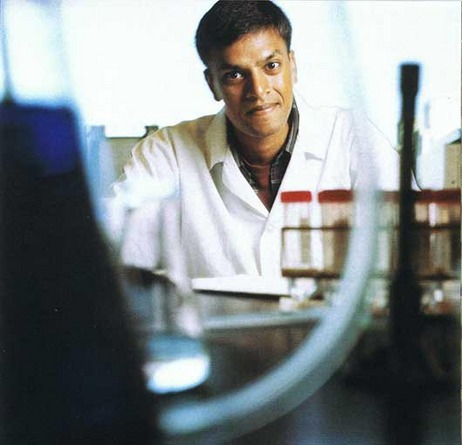Open Innovation to Boost Learning in the Developing World
Published Dec-20-10Breakthrough:
A cellular phone-based educational system wins an open innovation competition that looked for new ways of providing educational opportunities for millions of children in the developing world.
Company:
Dr. Andrew Deonarine, Canada
The Story:
 If your organisation has already embraced open innovation then it has joined the ranks of some of the world’s most innovative companies who have come to realise that great ideas can come from the outside.
If your organisation has already embraced open innovation then it has joined the ranks of some of the world’s most innovative companies who have come to realise that great ideas can come from the outside.An effective way of creating new technologies, adapting old ones or coming up with completely novel solutions is through open innovation competitions.
New Open Innovation Competition
The international economic news publication The Economist partnered with open innovation broker InnoCentive to create the 21st Century Cyber-schools Challenge to find solutions that would address the lack of educational opportunities in the developing world.
The problems that students face in some of the deprived parts of our planet are that many are illiterate and their communities cannot afford books or other types of learning materials. Even inexpensive laptops are beyond the means of many.
The new competition was open to a global network of solvers, the Economist’s millions of readers and to anyone else in the world with a potential solution.
“These Challenges will allow us to tap into the world’s brightest minds regarding some of humanity’s most pressing problems,” said Justin Hendrix, Executive Director of Brand Communications, and Events & Media Development for The Economist.
Submissions were welcomed from any discipline or background as those who adopt open innovation approaches know that brilliant ideas can come from anywhere.
Open Innovation Winner
The overall winner was Dr. Andrew Deonarine, a third-year medical resident at the School of Population and Public Health at the University of British Columbia. He was awarded $10,000 for his EduCell plan which is a cellular phone-based content creation system to teach literacy and math.
Material is developed and distributed using a method he developed called ‘Phonecasting’. A teacher can devise educational content and lessons using software that runs small multi-lingual “scripts”. These can be assembled with multimedia to create interactive modules which can then be published to millions of other mobile devices.
A voice tells users about the module and once accessed they are presented with content that includes video, animation and audio which will teach them valuable skills such as reading, writing and arithmetic.
For example, the program could say “this is how you write house” and then it would spell out the word. And it could teach numbers by telling the user to hit a number button when they see that number flashing on the screen.
One Solution to Tackle Many Problems
Dr. Deonarine’s innovative solution takes advantage of the fact that cell phones are cheap and their use in the developing world is growing exponentially. EduCall is low cost and requires minimum infrastructure; it is therefore easy to adopt.
This open innovation competition has discovered a technology that could not only go some way toward plugging the "education gap" in developing nations of the world, but it could also help solve social and economic problems too as these can only be effectively addressed when populations are literate.
Broadcasting your Ideas to the World
For Dr. Deonarine, the beauty of this open innovation competition is that it has given him the opportunity to get his ideas known by a wider audience, allowing him to translate concepts into practicable solutions. He hopes to start a non-governmental organisation to develop his innovation further and deploy it across the world.
Next Story »

